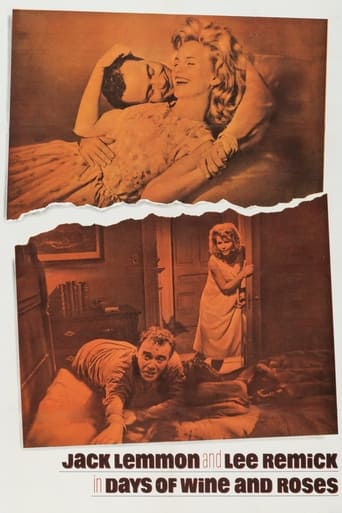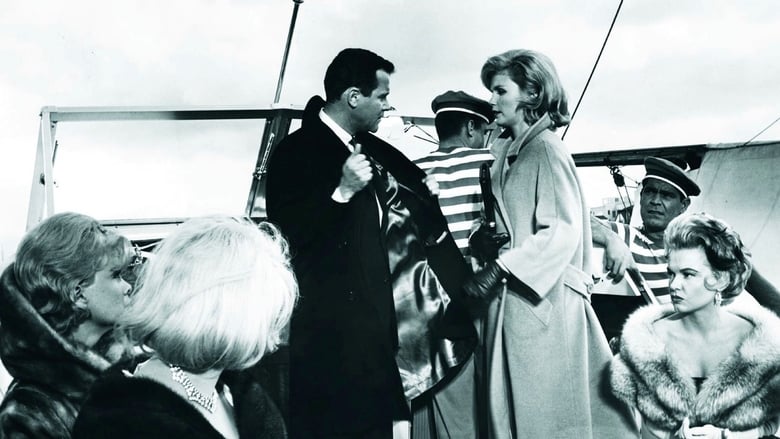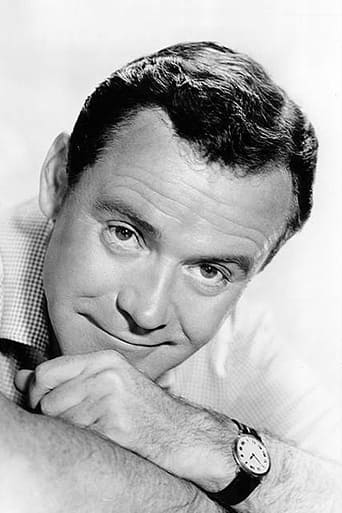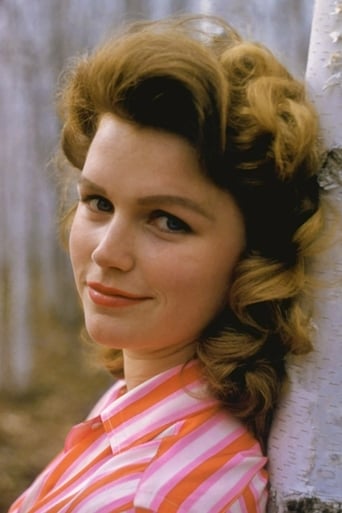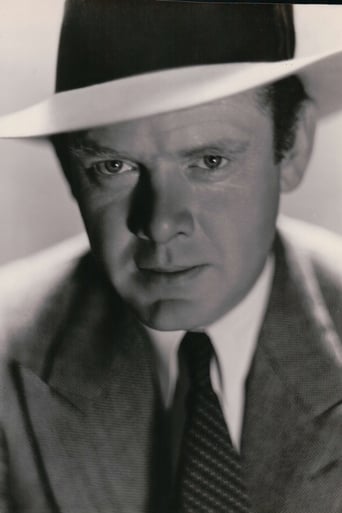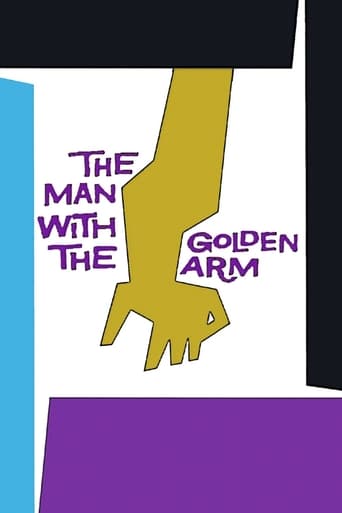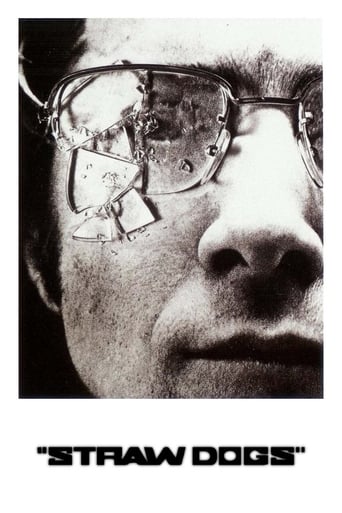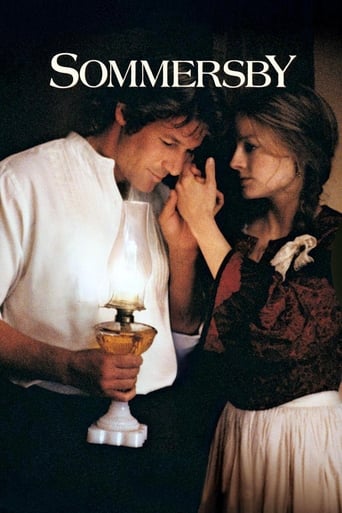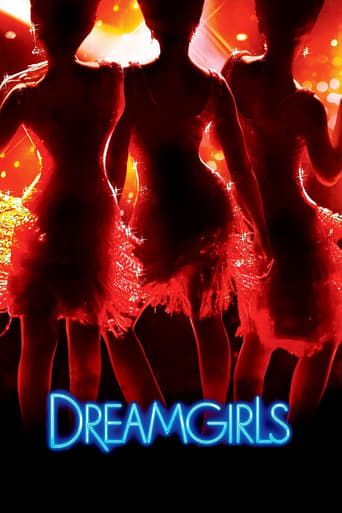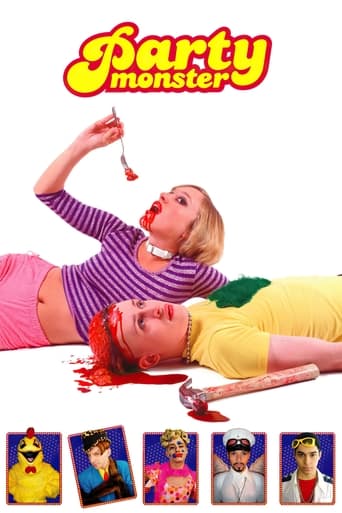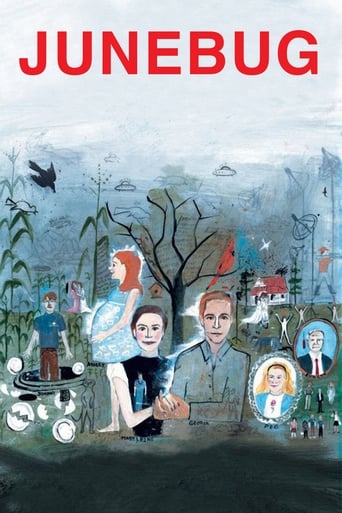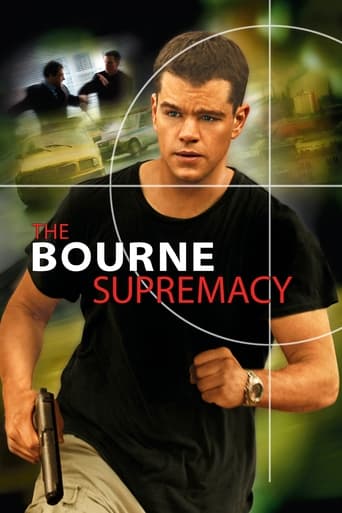Days of Wine and Roses (1963)
An alcoholic falls in love with and gets married to a young woman, whom he systematically addicts to booze so they can share his "passion" together.
Watch Trailer
Cast


Similar titles
Reviews
The movie Days of Wine and Roses is and always will be a classic. Beautiful movie. But the person who reviewed the movie is nuttier than a jar of Planters, and more crackers than Ritz. The Lost Weekend which earned Ray Milland an academy award is a brilliant movie and by NO MEANS does it have a happy ending. The man was about to kill himself. If his girlfriend hadn't come back he would have blown his brains out. A great realistic portrayal of alcoholism. Fantastic. Otherwise good review.
Blake Edwards, who gave us Breakfast at Tiffany's and Experiment in Terror, has now come up with a movie that, by contrast, is rather dull. But the main trouble doesn't actually lie with Mr. Edwards, but with the writing by J.P. Miller. You'll notice that although the movie won quite a few awards, none of them were for Best Writing! In fact, writing was not even nominated! The screenplay rambles all over the place, starting off with what seems to be a satire at the expense of the publicity and P.R. boys. But then it switches to a romantic comedy. Well and good! But before you can say, "Lee Remick", it's all about alcoholism. The film was nominated for Best Actress in a Leading Role (Lee Remick) by both the Academy Awards and the Golden Globes and actually won multiple awards in quite a few other famous film festivals. But, as said above, none of these awards were for Writing!
I had never seen this side of Jack Lemmon before. He was a very gifted and versatile performer. In this film, Lemmon, an alcoholic, but at first fooling himself that he is just a two martini lunch businessman, meets the very sober Remick. He ends up taking her out on a date and asks if she wants a drink. Remick states that she would rather eat chocolate than drink. Lemmon tells her he has just the drink for her and mixes her up a Brandy Alexander that contains creme de cacao--basically making Remick a chocolate flavored cocktail. This is the beginning of the end for Remick.Lemmon and Remick fall in love and marry. They spend their days drinking and drinking. Lemmon's alcoholism spirals out of control and he ends up being demoted and is sent away on business. Bored, Remick's alcoholism gets worse as she fills her empty time drinking. Lemmon is later fired due to his alcoholism and spends the next few years drifting from job to job.Lemmon and Remick realize that they have a problem and try to sober up together. For awhile, they are sober and working together in Remick's father's landscaping business. That all ends later however, when Lemmon ends up destroying Remick's father's greenhouse looking for stashed booze. The scene of Lemmon crawling around on the ground in the rain is particularly sad and pathetic and shows just how bad he and Remick's problem has gotten. Lemmon ends up joining AA in an effort to sober up. Jack Klugman plays Lemmon's sponsor.Lemmon appeals to Remick to join AA with him, but she won't. She doesn't feel she has a problem and feels that she can handle it herself when she wants to. Her father later tells Lemmon that his daughter has started disappearing for long stretches of time and is even picking up strangers in bars. This is a great scene between Jack Lemmon, and, by that time, old pro Charles Bickford in a very late performance in his career.The most bittersweet moment of the film is at the very end. Remick returns to Lemmon and appeals to him to make things the way they were. Lemmon says that he doesn't want things the way they were, he wants to be sober. Remick states that she likes her life better when she's drinking than when she's not. Lemmon is essentially forced to choose between his sobriety and being with her. He lets her go and Remick walks out the door, leaving her daughter and husband behind. Their daughter, seeing her mom leaving asks her father: "Will mommy ever get well?" Lemmon responds "I did, didn't I?" He looks out the window to watch Remick walk down the street - right toward a lit neon "Bar" sign.This film was so tragic and so sad, but it was also very compelling. Lemmon and Remick did an excellent job portraying two alcoholics and I liked that the film ended on a somewhat uncertain note. It seems that Lemmon will be okay, but what will become of Remick? Based on her actions in the film, things don't look rosy for her. You get the feeling that drinking is helping her hide from the fact that she IS an alcoholic, and the buzz helps her forget.
Most of us think of Blake Edwards as a director of comedies. After all, his "Pink Panther" series provided us with some of the funniest movies ever made, and his Dudley Moore comedies ("Micki And Maude," and particularly "10") are classics too. But Edwards was also capable of churning out more serious fare. The best of these films was a hit in 1962, but has long since been forgotten."Days Of Wine And Roses" begins innocently enough, as young public relations director Joe Clay goes on a first date with Kirsten Arnesen. While Kirsten is young and innocent, Joe makes his living in post-war corporate America. When my dad first began his sales career, during this same time period, his best friend warned him he had joined a "drinking fraternity." Sure enough, Joe introduces Kirsten to social drinking, they have lots of fun, get married, and have a daughter.As the Clay's casual drinking descends into a life of full-blown alcoholic despair, both Jack Lemmon (as Joe) and Lee Remick (as Kirsten) turn in the best performances of their careers. Joe eventually loses his top-notch sales position, then bounces around from job to job, before reluctantly going to work in his father-in-law's landscaping business. Joe and Kirsten manage sobriety for a while, but the lure of readily-available alcohol is simply too strong. Joe eventually gets sober through the then fledgling organization Alcoholics Anonymous, while Kirsten (a teetotaler at the film's outset) does not.Simply put, this is a film about alcoholism. Not the "closet" alcoholism portrayed by Ray Milland in "The Lost Weekend," nor the "death wish" alcoholism of Nicholas Cage in "Leaving Las Vegas." No, this is a warning-shot about the fine line between social drinking and disease. This may not sound like entertainment, per se; but consider it a very well-acted and well-written monition. While certain time-and-place aspects of "Days Of Wine And Roses" are dated, its message carries as much heft today as it did over a half-century ago.Lemmon should have won a Best Actor Oscar, if for no other reason than his scene of futile anguish when he breaks into his father-in-law's greenhouse one night for a hidden bottle of alcohol. The personal torment he conveys here is a heartbreaking plea for help – to no one in particular, save for himself and his creator. As a side note, Gregory Peck won that year's Best Actor Oscar for "To Kill A Mockingbird." It was one of those "congratulatory" Oscars, where the academy honors a longtime great, more for his or her body of work than the specific performance in question. Ironically, Lemmon himself would win such an Oscar eleven years later for the less-impressive "Save The Tiger." Screenwriter J.P. Miller adapted "Days Of Wine And Roses" from his own Playhouse 90 teleplay of 1958. Miller added some new material, Jack Lemmon in the title role, and voila! A classic was born.One of the enduring ramifications of this picture was the explosion in popularity of Alcoholics Anonymous. Founded in 1935, AA was still in its germinating state when Blake Edwards released "Days Of Wine And Roses." The timing couldn't have been better. The end of prohibition in 1933, coupled with the return of the often hard-drinking WWII soldiers in 1945, and a new economic and cultural prosperity in America in the 1950s, resulted in an outbreak of alcoholism never before witnessed. Many Americans searched for a cure, yet coveted anonymity due to the social norms of the day. Because of its relevance, and again because of Jack Lemmon's masterful acting accomplishment, I believe "Days Of Wine And Roses" should have won the Best Picture Oscar for 1962 – rather than David Lean's beautiful, yet long and somewhat draggy, "Lawrence Of Arabia." As our local newscasts never tire of reminding us, alcoholism (and drunk driving, in particular) is still a problem over 50 years after the release of "Days Of Wine And Roses." Even if you've seen it before, it certainly deserves another look. And that's why it's this month's Buried Treasure.

